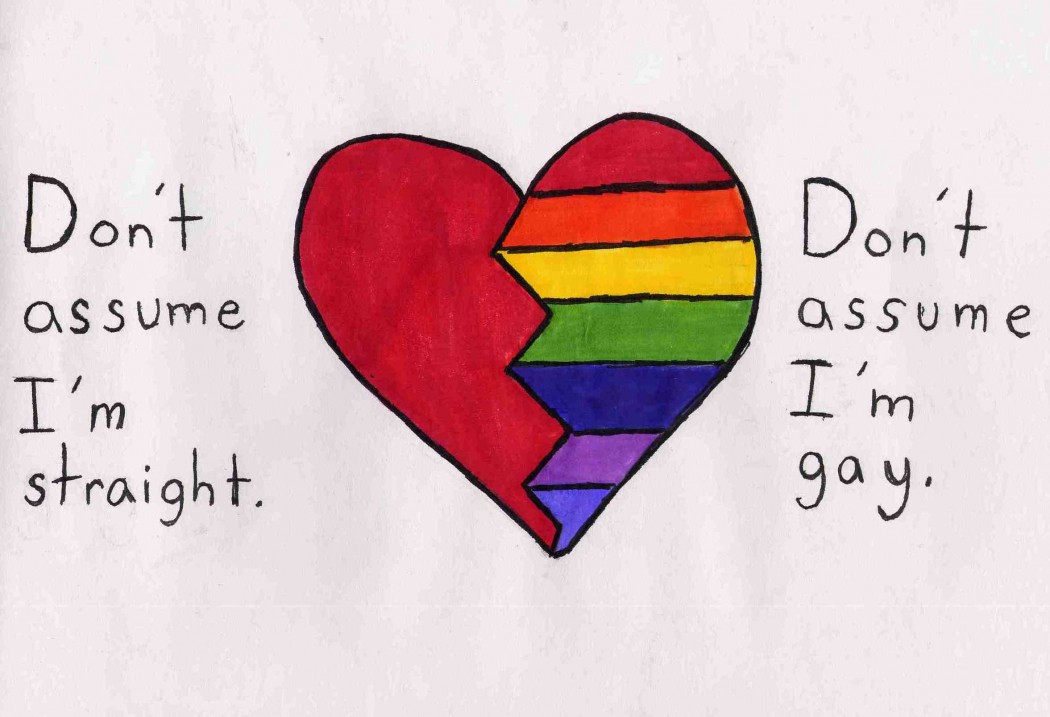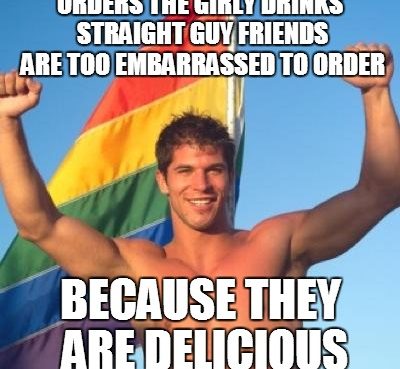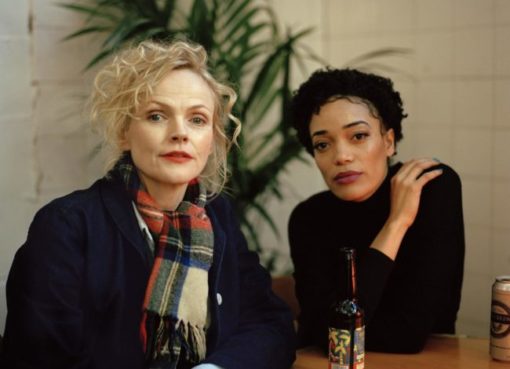Some people still bristle at the idea of sexuality on a spectrum. But a new survey shows the young are increasingly resistant to the old, binary definitions.

In writing her country’s 2012 anti-gay “propaganda” legislation, the Russian minister Yelena Mizulina was careful to include the banning of “distribution of information aimed at forming nontraditional sexual relations”, as if such relations could be caught and spread. Leaving aside for a second the misnomer “nontraditional” (cough, since the dawn of time, cough), it turns out Mizulina may have been right: for the gays are running riot.
Re-close the embassies and halt the visas. And switch off BBC Worldwide. Because, according to a YouGov poll released this weekend, on Britain’s shores at least, almost a quarter of people (23%) would not describe themselves as heterosexual, a figure rising to nearly half of 18- to 24-year-olds (49%).
The survey, of more than 1,600 adults, was based on the Kinsey scale, research by an American psychologist in the 1940s and 50s that asked people to put their sexuality on a continuum. Kinsey’s data showed that most people are neither exclusively heterosexual or homosexual but fall somewhere in between, and YouGov’s research seems to bear this out.
Of course, it was the scale that was invented in the 40s and not the behaviour (cough, dawn of time). And it shouldn’t come as a surprise that sexuality exists on a spectrum when almost all of human characteristics do. We don’t tend to think of people as simply “good” or “bad”, for instance; and life (and literature) would be dull if we did.
But this research is important. There’s a gloriously oxymoronic school of thought among bigots that homosexuals breed homosexuality, a belief steadfast in the face of its one, fatal biological flaw. My favourite ever anti-homophobia placard is the one reading “Corduroy skirts are a sin” held adjacent to a sartorially misguided evangelist with a placard of her own. But a close second is the more meaningful and perspicacious “Blame straight people – they keep having gay babies”.
For what the bigots really believe by heterosexuals “breeding” heterosexuality, is that the more visible and open gay people are, the higher the likelihood people with hidden same-sex inclinations will come to believe that this is acceptable and follow suit to live and love as they wish. The bigots are right. And what a glorious thing that is.
Of particular interest is the younger generation, who will have been of school age at the repeal of Section 28 in 2003 (the UK’s own version of Russia’s current anti-gay propaganda laws). If almost half of 18- to 24-year-olds do not describe themselves as “heterosexual”, it would appear that the understanding of sexual orientation as something other than a binary choice is increasing. We can put this down to, among other things, the strides made by gay civil rights protests.
Some people, however, still bristle at the idea of sexuality on a spectrum. They like being in a box. For many, that is the heterosexual box, but prejudice in and out of the LGBTQ community towards bisexual or bicurious people exists. Within the LGBTQ community itself, which operates according to a sort of federalism, it is not so unusual that if one is not homosexual, or heterosexual, or asexual, then a half-furled question mark of curiosity hangs in the air. Just look at some of the reaction when Tom Daley told the world of his relationship with Lance Black, having said previously that he “still fancies girls”. Why though, should people feel the need to be defined?
More heartening and indicative of shifting attitudes across the board is the finding that among those who defined themselves as heterosexual almost half (48%) agreed it was “conceivable” that, “if the right person came along” they could be attracted to someone of the same sex in future.
It’s interesting. This weekend, pictures rolled into my Facebook feed of a woman I once dated being wed to a man. I had never had any same-sex relationships before I met this woman, and neither had she before we met. It just was. Now she is married to a man and I have a girlfriend. So it goes, as Vonnegut might say. The more striking thing is that, in idly wondering whether we would have married at the time, I realised that no, we wouldn’t. Because back in 2010, it wouldn’t have been legal to do so in England.
If young people’s attitudes are the future – and they are – their, in general, increasing lack of interest in what other people do with their hearts and minds and genitals points towards a world of equality for those in same-sex relationships or with same-sex inclinations. We also have a generation of public figures willing to speak out about their sexual orientation, with or without fanfare or explanation or labels. Cara Delevigne and Annie Clark. Tom Daley and Lance Black. Kristen Stewart, in characteristically allergic-to-bullshit form, neither confirming nor denying she was in a relationship with her female assistant, but telling NYLON magazine: “Google me – I’m not hiding.”
People still sometimes moan about gay people “banging on” about being gay – I was one of them, before I had skin in the game – a heart in the game. In truth, as with any civil rights movement, we will bang on about it only until change occurs.
I live in London, a city that, according to YouGov’s results, has the lowest number of people who define themselves as heterosexual – but this doesn’t mean I haven’t been thrown out of a taxi when the driver realised my destination was a gay bar, or that a girlfriend hasn’t quietly slipped her hand out of mine on the Tube in the face of an aggressive man.
It’s great that, with the private member’s bill introduced yesterday, Australia may join America and Ireland in taking steps to legalise gay marriage, but in the same week it’s reported that Venice’s mayor has banned children’s books depicting same-sex relationships, including a story of a wolf cub who has two mothers. This is to say nothing of the more than 70 countries in which homosexuality itself is illegal, and the countries where it is punishable by death, either at the hands of legislators or populations rife with hate crime.
The YouGov findings are heartening because, in the face of all this continuing oppression, it gives one hope that progress can in fact be made. There’s a Greta Gerwig line in the new film Mistress America in which she tells her 18-year-old friends: “You should all be touching each other, all of the time.” It seems they do, and they don’t care if you care.






